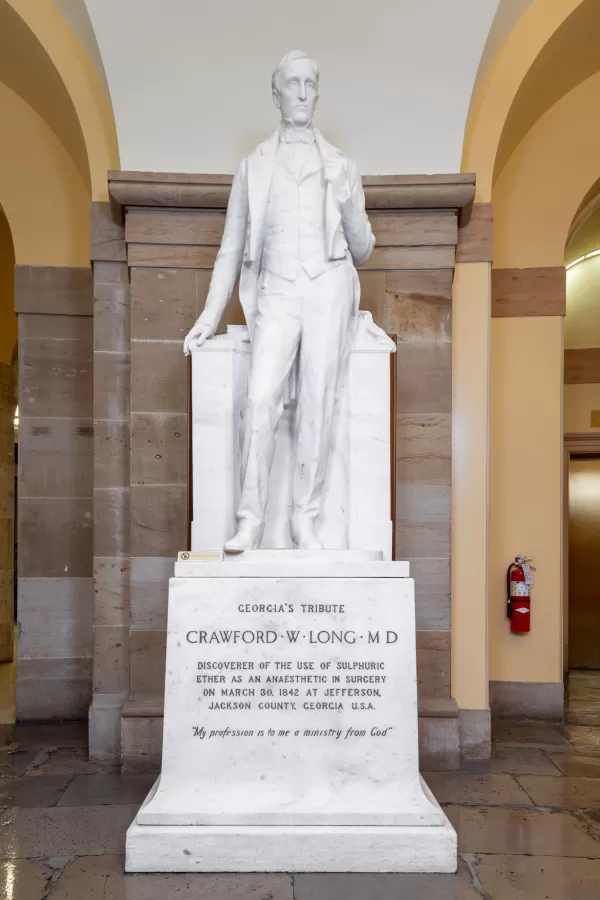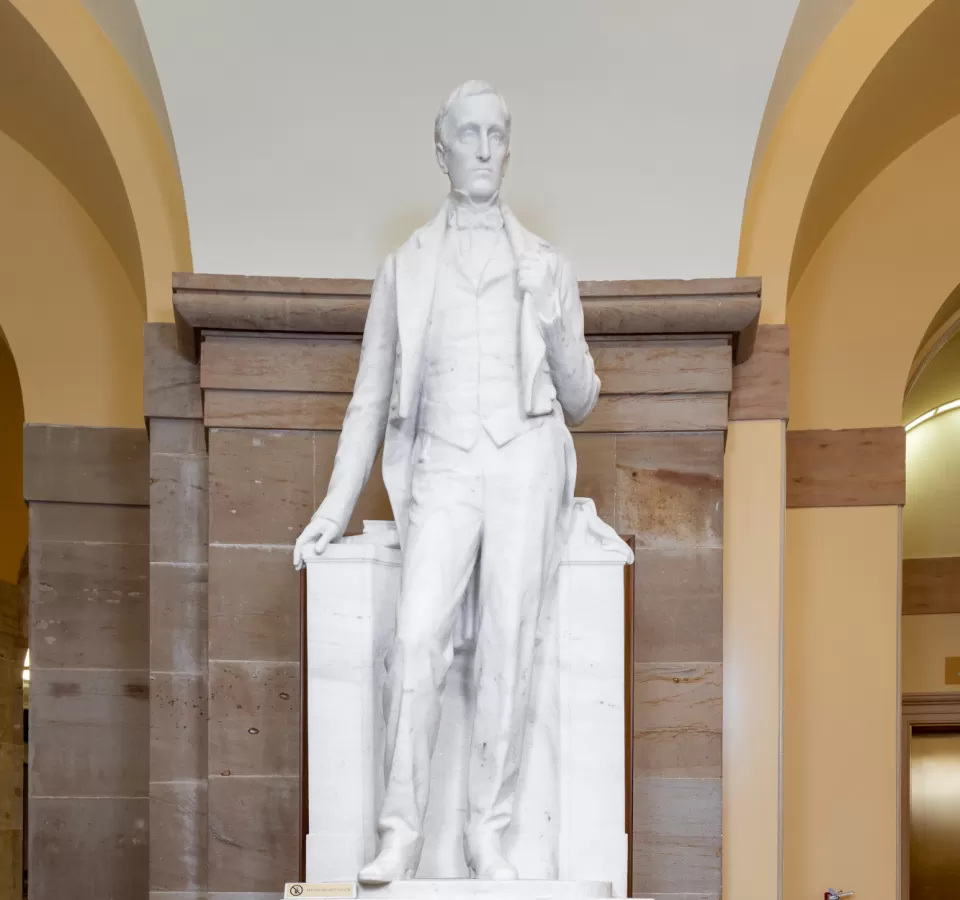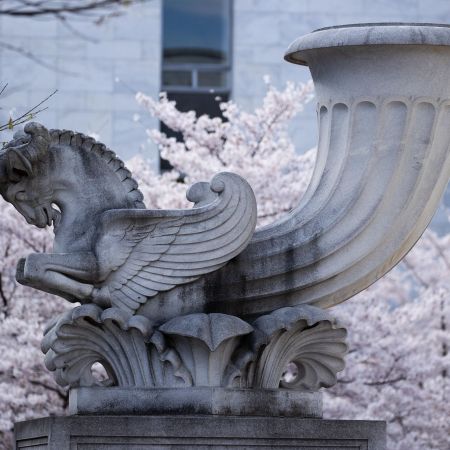This statue of Crawford W. Long was given to the National Statuary Hall Collection by Georgia in 1926.
Crawford W. Long, a quiet country doctor, was the first to discover the effect of ether and to use it in surgery. Born November 1, 1815, he was the son of a merchant and planter in Danielsville, Georgia. He graduated second in his class from the University of Georgia. He studied medicine at Transylvania College in Lexington, Kentucky, received his medical degree from the University of Pennsylvania in 1839, and studied surgery in New York City.
Returning to Georgia, he set up practice in Jefferson, Jackson County. There he began to experiment with sulfuric ether. On March 30, 1842, he used it surgically for the first time to remove a tumor from the neck of a boy. In 1849 medical journals reported similar work by a Boston dentist. When Congress introduced legislation granting the dentist $100,000 for this discovery, others claimed the reward. Long, who had not published the results of his work, then did so in the Southern Medical Journal. Recognizing Long's priority, others withdrew their claims and Congress dropped the bill. A research pamphlet later published by Johns Hopkins University substantiated Long's claim.
Long moved to Athens, Georgia, acquiring a large practice and an apothecary shop. He also began to use ether in obstetrical cases and did much charitable work among the poor. He died on June 16, 1878, of heart failure at the bedside of a mother who had just given birth.





